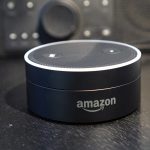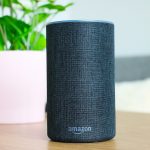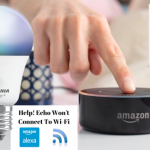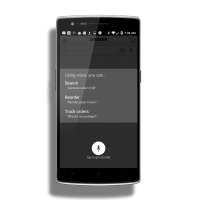WebMD’s new Alexa health skill should go to pharmacy school
The company’s Alexa skill didn’t understand drug names. Google Home performed much better.

WebMD just launched an Alexa skill that promises to answer health and medical questions. But it seems there’s a lot it doesn’t know.
The company’s press release offers a number of sample questions the assistant can potentially answer:
- “Alexa, ask WebMD to tell me about type 2 diabetes.”
- “Alexa, ask WebMD to tell me about amoxicillin.”
- “Alexa, ask WebMD what is an echocardiogram.”
- “Alexa, ask WebMD what are the side effects of steroids.”
- “Alexa, ask WebMD what are the symptoms of a heart attack.”
- “Alexa, ask WebMD what I can eat after a workout.”
The user reviews on Amazon generally fault the skill for not being able understand drug names. This was consistent with my experience. I asked about a number of prescription and generic drugs (e.g., acetaminophen), and it was unable to recognize most of them (even after repeated, slow attempts).
It was able to answer some basic questions about health and medical symptoms (“What’s the best way to treat a cold?”). But the overall experience is frustrating. This includes the general way that users must invoke particular skills: “Alexa, ask ___.” At least in this case, WebMD’s skill invites follow-up questions so you don’t have to do that for each query.
Google Home performed dramatically better than the WebMD skill across the same set of drug and side effects-related questions. It was able to recognize drug names and provided answers to all my questions. Admittedly, this wasn’t a systematic test, but it illustrates the potentially significant advantages that Google’s vast index and speech recognition capabilities bring to the competition.
Google also has content deals with several medical data providers, such as Mayo Clinic. So, in this case, WebMD’s Alexa skill has no advantage over Google. The ability of Amazon and Alexa to compete over the long term depends on third-party skills and data providers such as WebMD.
WebMD deserves credit for being an early adopter, and it’s not entirely clear where the problems reside, whether with the skill itself or Amazon’s speech recognition or both. While there are general “I’m still learning” disclaimers that come with some of the Alexa skills, Amazon and its third-party partners need to do a better job of managing and delivering against user expectations.
The WebMD experience was disappointing. Accordingly, there’s some brand exposure here.
Amazon needs to take a page from Apple and be more assertive about quality guidelines to ensure that its skills meet some minimum threshold of utility and usability. Right now, there are a lot of mediocre skills out there.
Better to have 100 great and useful voice apps than 10,000, many of which are weak or simply don’t work well.
Marketing Land – Internet Marketing News, Strategies & Tips
(69)














